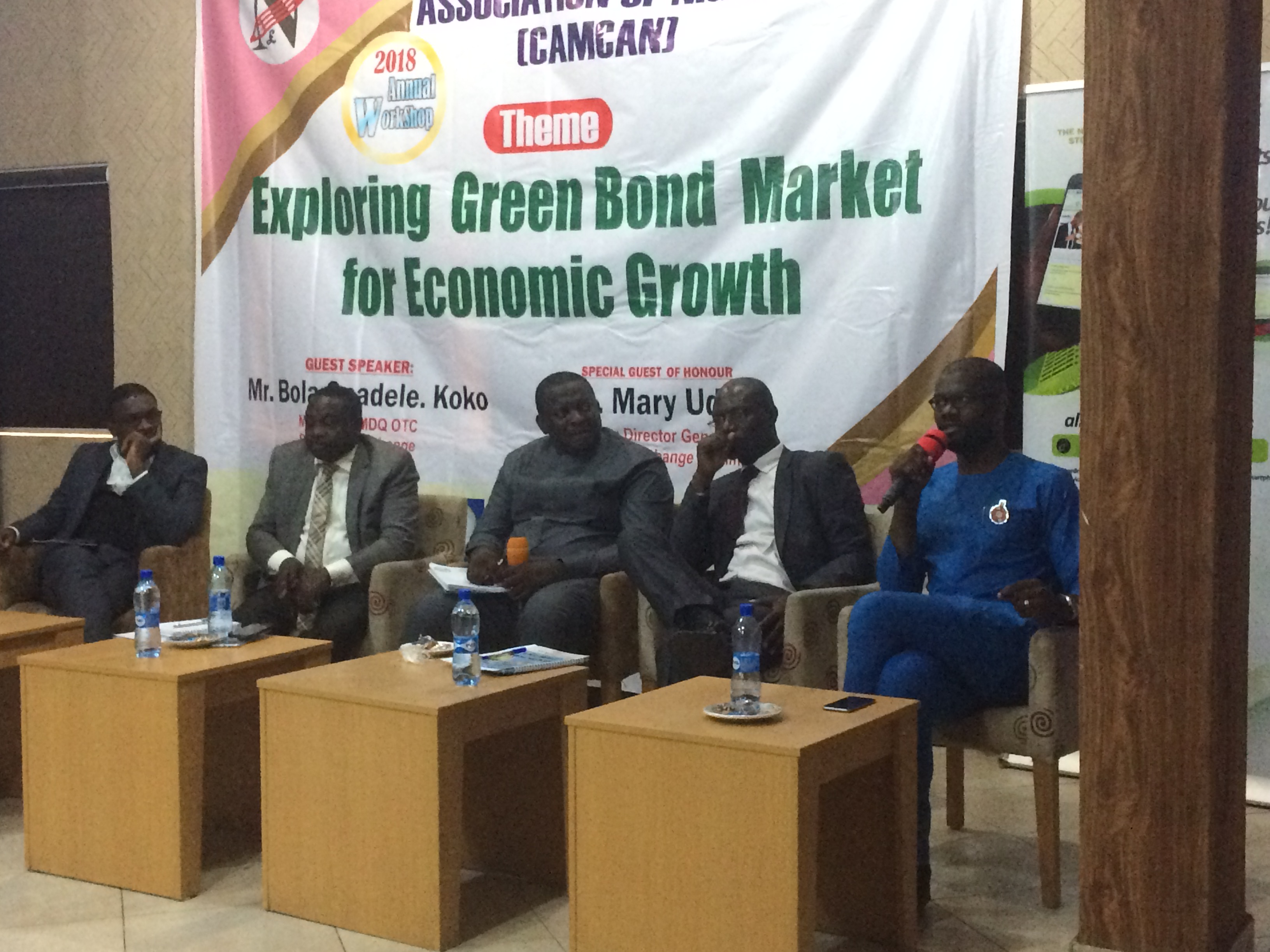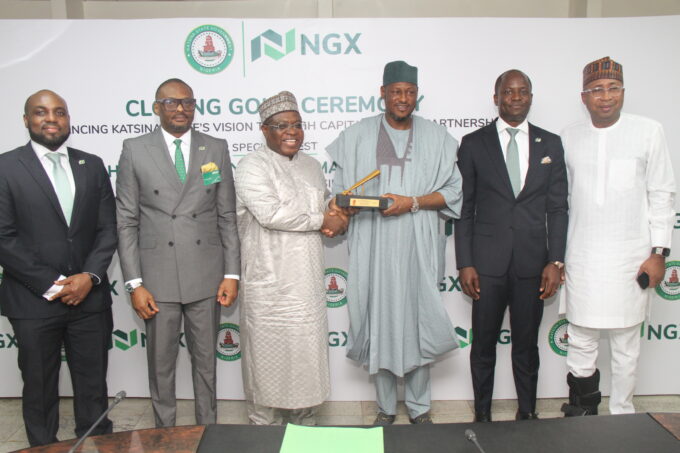For Nigeria to claw its way out of deficit in infrastructure, power and energy, transportation as well as eliminating environmental degradation, financial market experts has called for more domestic participation in green bonds investment.
Speaking during a panel session of the 2018 Capital Market Correspondents Association of Nigeria (CAMCAN) Annual workshop which held in Lagos at the weekend, Acting Director General, Securities and Exchange Commission (SEC), Mary Uduk, said the issuance of the first N10 billion tranche of the green bond received an excellent A+ rating from Moody while adding that SEC’s drive to the green bond program is unprecedented because it touches human lives.
Uduk who was represented by Head, Registration and Market Infrastructure Department, SEC, Emomotimi Agama, said that it is necessary Nigeria stands at the fore-front of innovations and initiatives while adding that the second tranche of green bonds which has been issued, presents an opportunity for the country to solve its infrastructural deficit.
“Infrastructural deficit is expected to hit $878 billion by 2040 and the future holds opportunities for renewable energy, energy efficiency, infrastructure, food, agriculture and the task ahead is to ensure funds are channeled to green projects with multiple socio-merits. The Commission will continue to promote an active enabling and regulative environment for the issuance of this instrument.”, Agama said.
Also speaking, Chief Executive Officer, FMDQ OTC Securities Exchange, Bola Onadele, who was represented by Senior Vice President, Economic development division at the Exchange, Emmanuel Etaderhi, said that $155 billion has been gotten from the green bonds issuance, thereby gaining attention of investors.
Etaderhi noted that the country’s resources is not growing in tandem with the rising population while adding that the reason for Nigeria’s woeful performance in the power and energy sector is down to its inability tap into energy utilization from the sun like other European countries.
According to him, the challenges affecting green bonds include low level of local participation in green bond verifiers, lack of investible projects, cost of verification and lack of understanding on the part of key investors.
“Green bond investors enjoy waivers relating to tax and in the next 15 years, we will require $7 trillion in investments connecting sustainable finance to capital markets.”, he said.
He revealed that the FMDQ has set a sustainable finance committee to engage private and public and will engage in training with partnership with FSD Africa and Climate Bond Initiative (CBI).
Commenting further, Director, Climate Finance Advisor, CBI, Dr Jubril Adeojo, noted that green bonds is made for Africa and with the deficits seen in major sectors of the economy, there is opportunity to focus more on renewable energy, hybrids to reduce the consumption of fossil fuels.
Adeojo said, “there is so much money to be made from green bonds and there is a way by eliminating exposure to foreign exchange which is sticking to local currency debt instruments. Once the real sector moves, things will change drastically and I believe that more people have to be encouraged to invest in the bonds”














